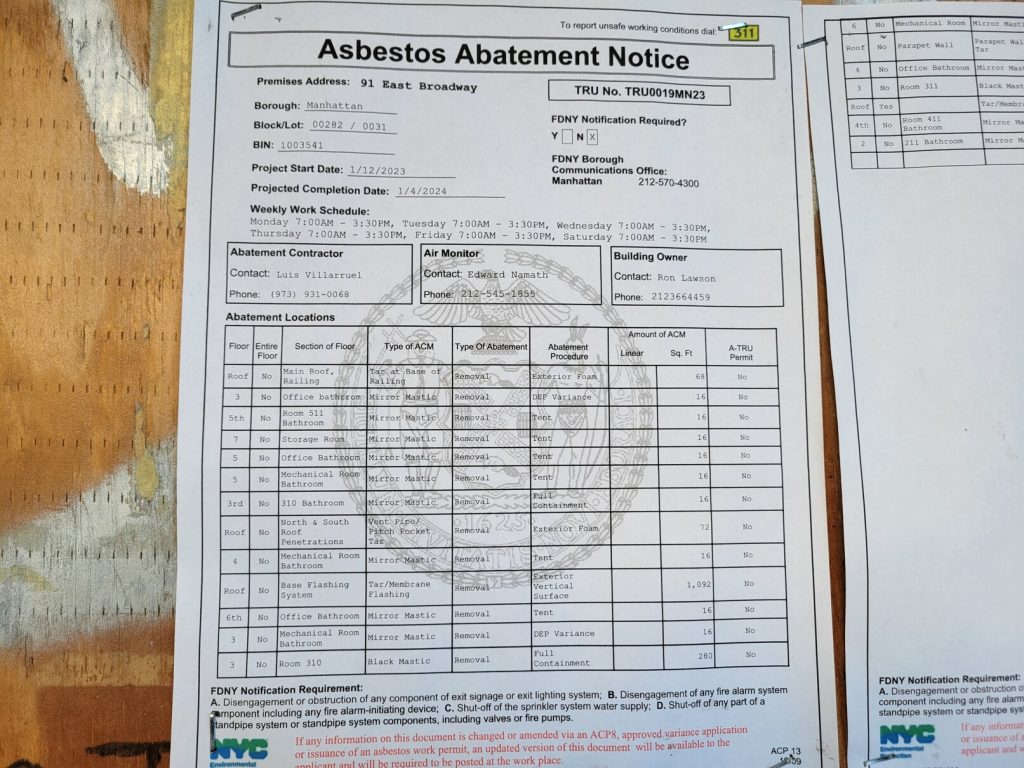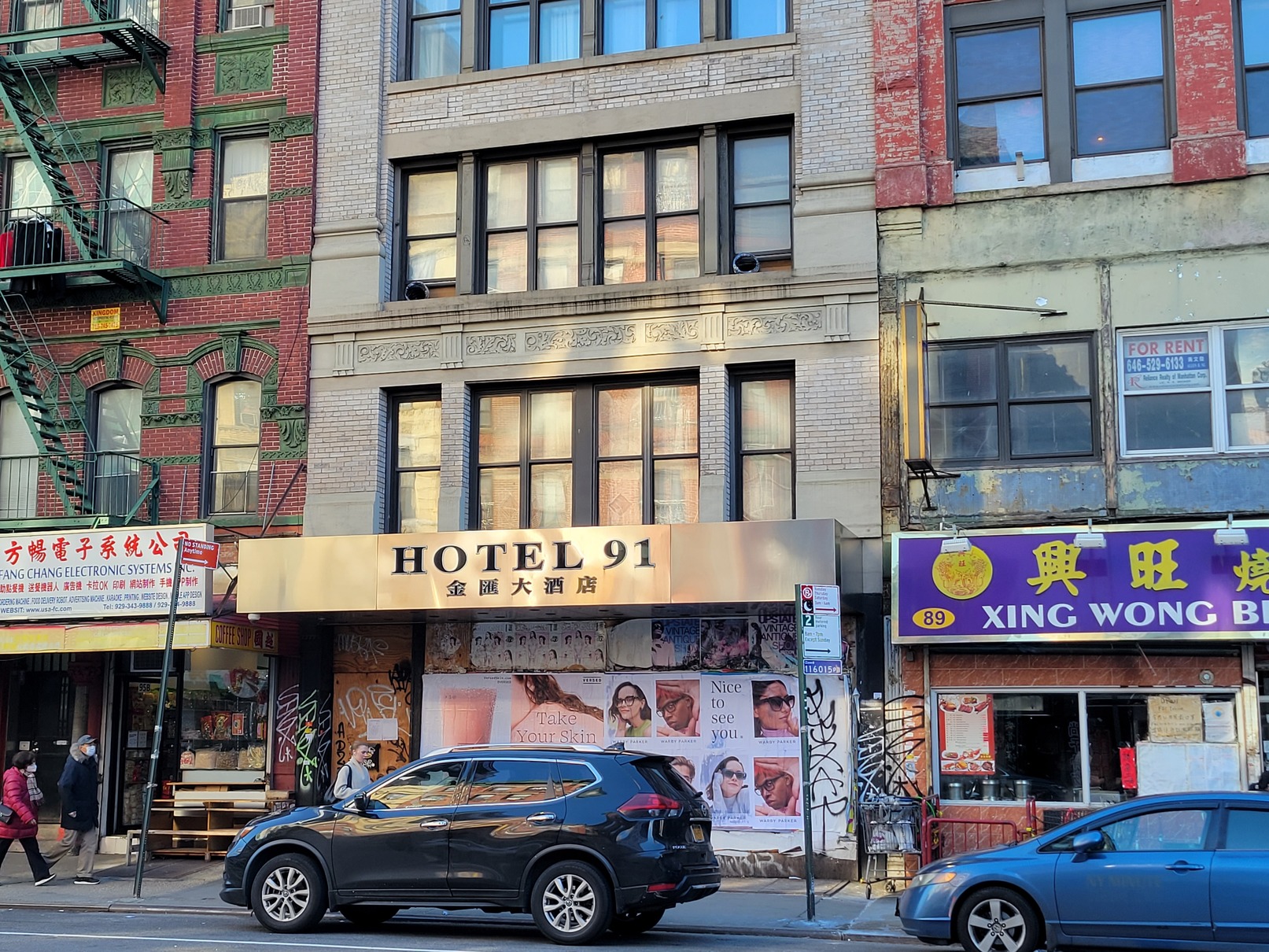BY KARLIN CHAN | The city’s Department of Homeless Services announced the addition of three homeless shelters to the Chinatown area in early 2022, which caused an immediate pushback from the community.
Demonstrations were held in front of the proposed locations in the following months, which yielded limited success when two of the proposed shelters — at 231 Grand St. and 47 Madison St. — were nixed. But 91 East Broadway remained on the table.
Community leaders, civic organizations and businesses along East Broadway came together and formed two groups — Concerned Citizens of East Broadway and the Greater Chinatown Civic Coalition — to announce a public fundraising campaign for legal fees for the lawsuit they vowed to file if the city went forward with the plan.

The site of the former 91 Hotel has been shuttered since the beginning of the pandemic in March 2020 and has remained unoccupied. But the property recently changed hands from Dragon Realty to CFH 91 East Broadway Housing Development Fund Corp., which, in turn, leased the entire building to Care for the Homeless. Care for the Homeless was the nonprofit announced by D.H.S. as the operator of the proposed 120-bed Safe Haven facility with supportive services to help homeless individuals transition to regular housing.
Initially, preliminary talks were held with the Chinatown nonprofit Asian Americans for Equality, which had hoped to include Asian homeless persons in the facility’s programming. But AAFE eventually pulled out due to the ongoing protests and harassment of staff at their locations, which left Chinatown without a voice at the table.
Renovation work has already begun and the 91 East Broadway property is currently undergoing asbestos abatement, which started Jan. 12 with a proposed completion of Jan 4, 2024.
Meanwhile, the former commercial hotel at 231 Grand St., is currently being used to shelter immigrants claiming asylum.


“Initially, preliminary talks were held with the Chinatown nonprofit Asian Americans for Equality, which had hoped to include Asian homeless persons in the facility’s programming. But AAFE eventually pulled out due to the ongoing protests and harassment of staff at their locations, which left Chinatown without a voice at the table.”
So the protesters who claim that Chinatown didn’t have a voice are the ones who drove the Chinatown voices out of the process through their own harassment campaign. Interesting.